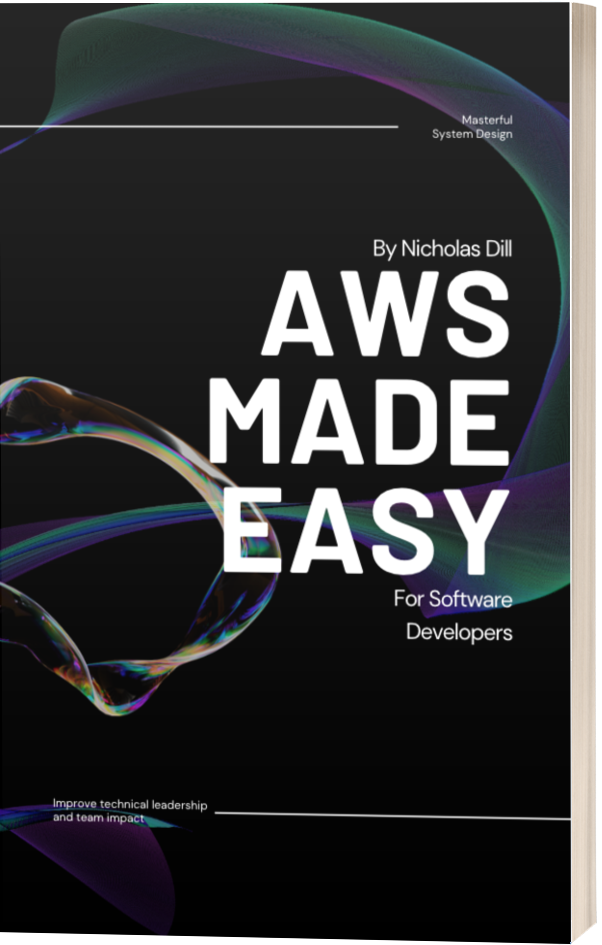How to Get Your First Job as a Software Developer: A Guide for Beginners
It feels like every company is looking for experienced software engineers.
But if you are just breaking into the field how do you land a job with little or no experience?
If you're a beginner software developer, the process of finding your first job can seem daunting. But don't worry, in this guide, we'll cover everything you need to do to land your dream job.
We'll start by discussing the basics of resumes and cover letters, and then move on to talking about networking, using recruiters, and interviewing. By the end of this guide, you'll be ready to start your career as a software developer!
1. Building a Strong Resume
One of the most important things you can do when applying for jobs is to have a strong resume.

Your resume is the first thing every hiring manager sees when they decide whether or not to give you a call and advance you to the next round in the process.
Your resume is really your first opportunity to make a good impression on potential employers, so it's important to make sure it stands out and accurately depicts your skills and experience. Make sure it's error-free and highlights your most impressive accomplishments.
If you don't have any professional experience, that's okay!
There are still plenty of ways to make your resume stand out.
For example, if you have completed any personal projects, be sure to include them on your resume.
I was able to get my first job as a software engineer with very limited experience, but because I linked to and talked about a personal project that I built, I was able to impress the team and get the job anyway.
2. Write a Cover Letter
Once you have a strong resume, the next step is to write a great cover letter.
Your cover letter is your chance to sell yourself to the employer and explain why you are the best candidate for the job.
I'll admit, I really don't like cover letters. They take a lot of work and most employers will probably put more emphasis on your resume anyway. But regardless a good cover letter can help and can make the difference if the hiring manager is on the borderline with your resume.
Depending on the number of job applications you send out, I recommend writing one cover letter that talks about why you want a role in software engineering, how you became interested in the field, and a short introduction to your most impressive personal project.
Then you can substitute the company name, the name of the specific role, and any other names or specific information that you referenced in your cover letter.
But again, be sure to customize each cover letter for each job you apply for and avoid using generic phrases.
3. Start Networking
The next step in landing your dream job is networking.
Networking can be a great way to make connections and learn about new job opportunities.
You're much more likely to advance through the interview process if you have a strong referral from someone at the company. Even a friend who worked there as an intern within the last few years.
There are a few different ways to network, such as attending industry events or connecting with people online.
If you're not sure where to start, try social media platforms like LinkedIn and reach out to friends in the same field who might be able to help you out or point you to someone that can.
4. Talk With Recruiters
Another great way to find a job is to talk with recruiters.
Recruiters can tell you about open positions and help you connect with hiring managers.
They are incentivized to help you find an amazing high-paying job (because that's how they get paid too), so you can lean on them to do a lot of the hard work of finding opportunities for you.
A good recruiter can also help you out with your resume and answer any questions about interviewing. They are like a coach throughout this process, to help you succeed in your job hunt.
If you're not sure how to find a recruiter, try searching online or attending industry events.
And the best part? They're FREE! The company that hires you will typically pay them their commission, so don't sweat having to compensate them for all their hard work on your behalf.
5. Interviewing
Once you've landed an interview, it's time to start preparing.
The best way to prepare for an interview is to practice answering common questions out loud.
This will help you get comfortable with the format and reduce the chances of getting tongue-tied when it comes time to answer the real thing.
It's also a good idea to dress professionally. For a lot of startups, this might just mean a clean t-shirt but I like to wear at least a polo or collar of some kind.
Also, arrive early to your interview.
This shows that you're respectful of the interviewer's time and are taking the process seriously.
Wrapping Up
By following these steps, you'll be well on your way to landing your first job as a software developer! Just remember to stay positive and keep networking. The right opportunity will come along eventually!
